- Home
- Graham McNeill
False Gods Page 4
False Gods Read online
Page 4
He didn’t know whether to be disappointed or relieved.
Horus had come to the same conclusion not long after they had landed, sniffing the air of Davin with a look of recognition.
‘There is no war here,’ he had said.
‘No war?’ Abaddon had asked. ‘How can you tell?’
‘You learn, Ezekyle,’ said Horus. ‘The smell of burnt meat and metal, the fear and the blood. There is none of that on this world.’
‘Then why are we here?’ asked Aximand, reaching up to lift his plumed helmet clear of his head.
‘It would seem we are here because we have been summoned,’ replied Horus, his tone darkening, and Loken had not liked the sound of the word ‘summoned’ coming from the Warmaster’s lips.
Who would dare to summon the Warmaster?
The answer had come when a column of dust grew on the eastern horizon and eight boxy, tracked vehicles rumbled across the steppe towards them. Shadowed by the Stormbirds that had flown in with the Warmaster, the dark, brushed steel vehicles trailed guidons from their vox-antenna, emblazoned with the heraldry of an Astartes Legion.
From the lead Rhino, a great, devotional trophy rack stood proud of the armoured glacis, hung with golden eagles and books, and sporting jagged lightning bolts picked out in lapis lazuli.
‘Erebus,’ spat Loken.
‘Hold your tongue,’ warned Horus as the Rhinos had drawn closer, ‘and let me do the talking.’
BIZARRELY, THE YURT smelled of apples, although Ignace Karkasy could see no fruit in any of the carved wooden trays, just heaped cuts of meat that looked a little on the raw side for his epicurean palate. He could swear he smelled apples. He glanced around the interior of the yurt, wondering if perhaps there was some local brew of cider on offer. A hairy-faced local with impenetrable black eyes had already offered him a shallow bowl of the local liquor, a foul-looking brew that smelled like curdled milk, but after catching a pointed glance from Euphrati Keeler he’d politely declined.
Like the drink, the yurt was crude, but had a primitive majesty to it that appealed to the romantic in him, though he was savvy enough to know that primitive was all very well and good unless you had to live there. Perhaps a hundred people filled the yurt – army officers, strategium adepts, a few remembrancers, scribes and military aides.
All come for the commander’s War Council.
Casting his gaze around the smoky interior, Karkasy had seen that he was in illustrious company indeed: Hektor Varvarus, Lord Commander of the Army, stood next to a hunched Astartes giant swathed in cream coloured robes who Karkasy knew must be the Warmaster’s equerry, Maloghurst.
An unsmiling figure in the black uniform of a Titan commander stood to attention at the forefront of the gathering, and Karkasy recognised the jowly features of Princeps Esau Turnet, commander of the Imperator Titan, Dies Irae. Turnet’s Titan had led the armada of enormous battle machines into the heart of the megarachnid territory on Murder and had earned the Legio Mortis the lion’s share of the glory.
Karkasy remembered the huge Titan that towered over the architectural presentation that Peeter Egon Momus had given back on Sixty-Three Nineteen, and shivered. Even motionless, it had provoked an intense reaction in him, and the thought of such incredible destructive power being unleashed didn’t bear thinking about.
The hissing collection of silver struts and whirling cogs that encased scraps of flesh in a vaguely humanoid form must be the Mechanicum adept, Regulus, and Karkasy saw enough brass and medals hanging from puffed out, uniformed chests to equip a battalion.
Despite the presence of such luminaries, Karkasy found himself stifling a yawn as he and the rest of the audience listened to the Davinite lodge master, Tsi Rekh, performing an elaborate chant in the local tongue. As interesting as it had been to see the bizarre, almost-human locals, Karkasy knew that simply bearing witness to this interminable ceremony of welcome couldn’t be the reason why Captain Loken had authorised his presence at the War Council.
A bland faced iterator named Yelten translated the lodge priest’s speech into Imperial Gothic, the precisely modulated timbre of his voice carrying the words to the very edges of the yurt.
Say what you like about the iterators, thought Karkasy, they can certainly enunciate to the back row.
‘How much longer is this going to go on for?’ whispered Euphrati Keeler, leaning towards him. Dressed in her ubiquitous combat fatigues, chunky army boots and tight white vest top, Keeler looked every inch the spunky frontierswoman. ‘When is the Warmaster going to get here?’
‘No idea,’ said Ignace, sneaking a look down her cleavage. A thin silver chain hung around her neck, whatever was hanging on it, hidden beneath the fabric of her top.
‘My face is up here, Ignace,’ said Euphrati.
‘I know, my dear Euphrati,’ he said, ‘but I’m terribly bored now and this view is much more to my liking.’
‘Give it up, Ignace, it’s never going to happen.’
He shrugged. ‘I know, but it is a pleasant fiction, my dear, and the sheer impossibility of a quest is no reason to abandon it.’
She smiled, and Ignace knew that he was probably a little in love with Euphrati Keeler, though the time since the xeno beast had attacked her in the Whisperheads had been hard for her, and to be honest, he was surprised to see her here. She’d lost weight and wore her blonde hair scraped back in a tight ponytail, still beautifully feminine, despite her best attempts to disguise the fact. He’d once written an epic poem for the marchioness Xorianne Delaquis, one of the supposed great beauties of the Terran court – a despicable commission that he’d loathed, but one that had paid handsomely – but her beauty was artificial and hollow compared to the vitality he now saw in Keeler’s face, like someone born anew.
Well out of his league, he knew, what with his generously proportioned physique, hangdog eyes and plain, round face; but his looks had never deterred Ignace Karkasy from attempting to seduce beautiful women – they just made it more of a challenge.
He had made some conquests by riding the adulation for his earlier work, Reflections and Odes garnering him several notable carnal tales, while other, more easily impressed members of the opposite sex had been seduced by his witty badinage.
He already knew that Euphrati Keeler was too smart to fall for such obvious flattery, and contented himself with counting her simply as a friend. He smiled as he realised that he didn’t think he’d ever had a woman as a friend before.
‘To answer your question seriously, my dear,’ he said, ‘I hope the Warmaster will be here soon. My mouth’s as dry as a Tallam’s sandal and I could use a bloody drink.’
‘Ignace…’ said Euphrati.
‘Spare us from those of moral fibre,’ he sighed. ‘I didn’t mean anything alcoholic, though I could fair sink a bottle of that swill they drank on Sixty-Three Nineteen right about now.’
‘I thought you hated that wine,’ said Keeler. ‘You said it was tragic.’
‘Ah, yes, but when you’ve been reduced to drinking the same vintage for months, it’s surprising what you’ll be willing to drink for a change.’
She smiled, placing her hand over whatever lay at the end of the chain around her neck and said, ‘I’ll pray for you, Ignace.’
He felt a flicker of surprise at her choice of words, and then saw an expression of rapt adoration settle over her as she raised her picter at something behind him. He turned to see the door flap of the yurt pushed aside and the massive bulk of an Astartes duck down as he entered. Karkasy did a slow double take as he saw that the warrior’s shining plate armour was not that of the Sons of Horus, but was the carved granite grey of the Word Bearers. The warrior carried a staff crowned with a book draped in oath paper, over which wound a long sash of purple cloth. He had his helmet tucked into the crook of his arm, and seemed surprised to see all the remembrancers there.
Karkasy could see that the Astartes’s wide-featured face was earnest and serious, his skull shaved and covered with i
ntricate scriptwork. One shoulder guard of his armour was draped in heavy parchment, rich with illuminated letters, while the other bore the distinctive icon of a book with a flame burning in its centre. Though he knew it symbolised enlightenment springing forth from the word, Karkasy instinctively disliked it.
It spoke to his poet’s soul of the Death of Knowledge, a terrible time in the history of ancient Terra when madmen and demagogues burned books, libraries and wordsmiths for fear of the ideas they might spread with their artistry. By Karkasy’s way of thinking, such symbols belonged to heathens and philistines, not Astartes charged with expanding the frontiers of knowledge, progress and enlightenment.
He smiled to himself at this delicious heresy, wondering if he could work it into a poem without Captain Loken realising, but even as the rebellious thought surfaced, he quashed it. Karkasy knew that his patron was showing his work to the increasingly reclusive Kyril Sindermann. For all his dreariness, Sindermann was no fool when it came to the medium, and he would surely spot any risqué references.
In that case, Karkasy would quickly find himself on the next bulk hauler on its way back to Terra, regardless of his Astartes sponsorship.
‘So who’s that?’ he asked Keeler, returning his attention to the new arrival as Tsi Rekh stopped his chanting and bowed towards the newcomer. The warrior in turn raised his long staff in greeting.
Keeler gave him a sidelong glance, looking at him as though he had suddenly sprouted another head.
‘Are you serious?’ she hissed.
‘Never more so, my dear, who is he?’
‘That,’ she said proudly, snapping off another pict of the Astartes warrior, ‘is Erebus, First Chaplain of the Word Bearers.’
And suddenly, with complete clarity, Ignace Karkasy knew why Captain Loken had wanted him here.
STEPPING ONTO THE dusty hardpan of Davin, Karkasy had been reminded of the oppressive heat of Sixty-Three Nineteen. Moving clear of the propwash of the shuttle’s atmospheric rotors, he’d half run, half stumbled from beneath its deafening roar with his exquisitely tailored robes flapping around him.
Captain Loken had been waiting for him, resplendent in his armour of pale green and apparently untroubled by the heat or the swirling vortices of dust.
‘Thank you for coming at such short notice, Ignace.’
‘Not at all, sir,’ said Karkasy, shouting over the noise of the shuttle’s engines as it lifted off the ground. ‘I’m honoured, and not a little surprised, if I’m honest.’
‘Don’t be. I told you I wanted someone familiar with the truth, didn’t I?’
‘Yes, sir, indeed you did, sir,’ beamed Karkasy. ‘Is that why I’m here now?’
‘In a manner of speaking,’ agreed Loken. ‘You’re an inveterate talker, Ignace, but today I need you to listen. Do you understand me?’
‘I think so. What do you want to me to listen to?’
‘Not what, but who.’
‘Very well. Who do you want me to listen to?’
‘Someone I don’t trust,’ said Loken.
THREE
A sheet of glass
A man of fine character
Hidden words
ON THE DAY before making planetfall to the surface of Davin, Loken sought out Kyril Sindermann in Archive Chamber Three to return the book he had borrowed from him. He made his way through the dusty stacks and piles of yellowed papers, lethargic globes of weak light bobbing just above head height, his heavy footsteps echoing loudly in the solemn hush. Here and there, a lone scholar clicked through the gloom in a tall stilt chair, but none was his old mentor.
Loken travelled through yet another dizzyingly tall lane of manuscripts and leather bound tomes with names like Canticles of the Omniastran Dogma, Meditations on the Elegiac Hero and Thoughts and Memories of Old Night. None of them was familiar, and he began to despair of ever finding Sindermann amidst this labyrinth of the arcane, when he saw the iterator’s familiar, stooped form hunched over a long table and surrounded by collections of loose parchment bound with leather cords, and piles of books.
Sindermann had his back to him and was so absorbed in his reading that, unbelievably, he didn’t appear to have heard Loken’s approach.
‘More bad poetry?’ asked Loken from a respectful distance.
Sindermann jumped and looked over his shoulder with an expression of surprise and the same furtiveness he had displayed when Loken had first met him here.
‘Garviel,’ said Sindermann, and Loken detected a note of relief in his tone.
‘Were you expecting someone else?’
‘No. No, not at all. I seldom encounter others in this part of the archive. The subject matter is a little lurid for most of the serious scholars.’
Loken moved around the table and scanned the papers spread before Sindermann – tightly curled, unintelligible script, sepia woodcuts depicting snarling monsters and men swathed in flames. His eyes flicked to Sindermann, who chewed his bottom lip nervously at Loken’s scrutiny.
‘I must confess to have taken a liking to the old texts,’ explained Sindermann. ‘Like The Chronicles of Ursh I loaned you, it’s bold, bloody stuff. Naive and overly hyperbolic, but stirring nonetheless.’
‘I have finished reading it, Kyril,’ said Loken, placing the book before Sindermann.
‘And?’
‘As you say, it’s bloody, garish and sometimes given to flights of fantasy…’
‘But?’
‘But I can’t help thinking that you had an ulterior motive in giving me this book.’
‘Ulterior motive? No, Garviel, I assure you there was no such subterfuge,’ said Sindermann, though Loken could not be sure that he believed him.
‘Are you sure? There are passages in there that I think have more than a hint of truth to them.’
‘Come now, Garviel, surely you can’t believe that,’ scoffed Sindermann.
‘The murengon,’ stated Loken. ‘Anult Keyser’s final battle against the Nordafrik conclaves.’
Sindermann hesitated. ‘What about it?’
‘I can see from your eyes that you already know what I’m going to say.’
‘No, Garviel, I don’t. I know the passage you speak of and, while it’s certainly an exciting read, I hardly think you can take its prose too literally.’
‘I agree,’ nodded Loken. ‘All the talk of the sky splitting like silk and the mountains toppling is clearly nonsense, but it talks of men becoming daemons and turning on their fellows.’
‘Ah… now I see. You think that this is another clue as to what happened to Xavyer Jubal?’
‘Don’t you?’ asked Loken, turning one of the yellowed parchments around to point at a fanged daemon figure clothed in fur with curling ram’s horns and a bloody, skull-stamped axe.
‘Jubal turned into a daemon and tried to kill me! Just as happened to Anult Keyser himself. One of his generals, a man called Wilhym Mardol, became a daemon and killed him. Doesn’t that sound familiar?’
Sindermann leaned back in his chair and closed his eyes. Loken saw how tired he looked, his skin the colour of the parchments he perused and his clothes hanging from his body as though draped across his bare bones.
Loken realised that the venerable iterator was exhausted.
‘I’m sorry, Kyril,’ he said, also sitting back. ‘I didn’t come here to pick a fight with you.’
Sindermann smiled, reminding Loken of how much he had come to rely on his wise counsel. Though not a tutor as such, Sindermann had filled the role of Loken’s mentor and instructor for some time, and it had come as a great shock to discover that Sindermann did not have all the answers.
‘It’s alright, Garviel, it’s good that you have questions, it shows you are learning that there is often more to the truth than what we see at first. I’m sure the Warmaster values that aspect of you. How is the commander?’
‘Tired,’ admitted Loken. ‘The demands of those crying for his attention grow more strident every day. Communiqués from every expediti
on in the Crusade seek to pull him in all directions, and insulting directives from the Council of Terra seek to turn him into a damned administrator instead of the Warmaster. He carries a huge burden, Kyril; but don’t think you can change the subject that easily.’
Sindermann laughed. ‘You are becoming too quick for me, Garviel. Very well, what is it you want to know?’
‘The men in the book who were said to use sorcerous powers, were they warlocks?’
‘I don’t know,’ admitted Sindermann. ‘It’s certainly possible. The powers they used certainly do not sound natural.’
‘But how could their leaders have sanctioned the use of such powers? Surely they must have seen how dangerous it was?’
‘Perhaps, but think on this: we know so little on the subject and we have the light of the Emperor’s wisdom and science to guide us. How much less must they have known?’
‘Even a barbarian must know that such things are dangerous,’ said Loken.
‘Barbarian?’ said Sindermann. ‘A pejorative term indeed, my friend. Do not be so quick to judge, we are not so different from the tribes of Old Earth as you might think.’
‘Surely you’re not serious,’ asked Loken. ‘We are as different from them as a star from a planet.’
‘Are you so sure, Garviel? You believe that the wall separating civilisation from barbarism is as solid as steel, but it is not. I tell you the division is a thread, a sheet of glass. A touch here, a push there, and you bring back the reign of pagan superstition, fear of the dark and the worship of fell beings in echoing fanes.’
‘You exaggerate.’
‘Do I?’ asked Sindermann, leaning forward. ‘Imagine a newly compliant world that experiences a shortage of some vital resource, such as fuel, water or food; how long would it take before civilised behaviour broke down and barbaric behaviour took over? Would human selfishness cause some to fight to get that resource at all costs, even if it meant harm to others and trafficking with evil? Would they deprive others of this resource, or even destroy them in an effort to keep it for themselves? Common decency and civil behaviour are just a thin veneer over the animal at the core of mankind that gets out whenever it has the chance.’

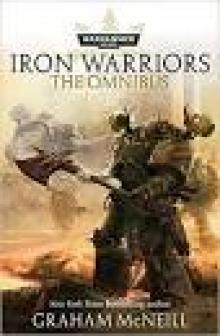 Iron Warriors - The Omnibus
Iron Warriors - The Omnibus Old Wounds, New Scars
Old Wounds, New Scars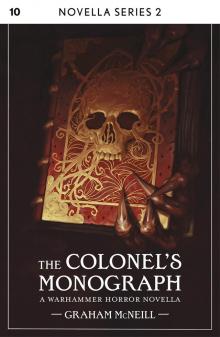 The Colonel's Monograph
The Colonel's Monograph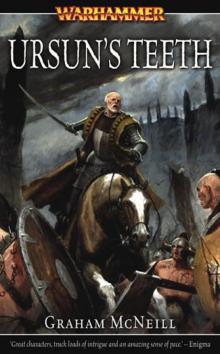 Ursuns Teeth
Ursuns Teeth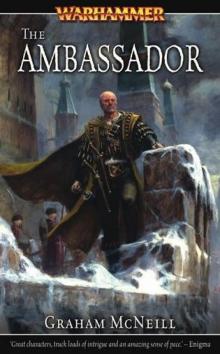 The Ambassador
The Ambassador![[Ultramarines 5] Courage and Honour - Graham McNeill Read online](http://i1.bookreadfree.com/i/03/12/[ultramarines_5]_courage_and_honour_-_graham_mcneill_preview.jpg) [Ultramarines 5] Courage and Honour - Graham McNeill
[Ultramarines 5] Courage and Honour - Graham McNeill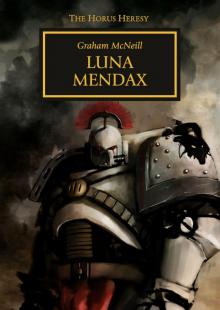 28a Luna Mendax
28a Luna Mendax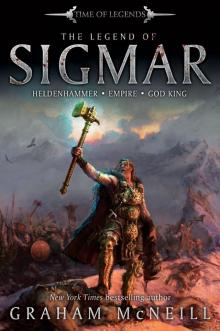 The Legend of Sigmar
The Legend of Sigmar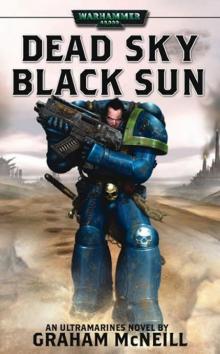 Warhammer - Ultramarines 03 - Dead Sky, Black Sun (McNeill, Graham)
Warhammer - Ultramarines 03 - Dead Sky, Black Sun (McNeill, Graham)![Warhammer - [The Ambassador Chronicles 01] - The Ambassador Read online](http://i1.bookreadfree.com/i/03/17/warhammer_-_[the_ambassador_chronicles_01]_-_the_ambassador_preview.jpg) Warhammer - [The Ambassador Chronicles 01] - The Ambassador
Warhammer - [The Ambassador Chronicles 01] - The Ambassador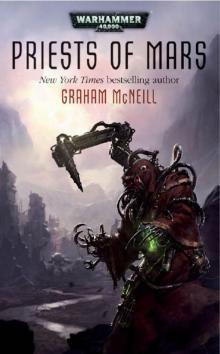 Priests of Mars
Priests of Mars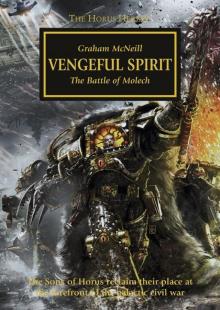 Vengeful Spirit
Vengeful Spirit![[Sigmar 03] - God King Read online](http://i1.bookreadfree.com/i/03/13/[sigmar_03]_-_god_king_preview.jpg) [Sigmar 03] - God King
[Sigmar 03] - God King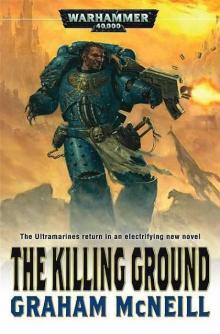 The Killing Ground
The Killing Ground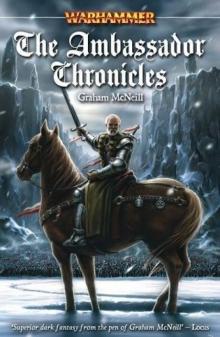 The Ambassador Chronicles
The Ambassador Chronicles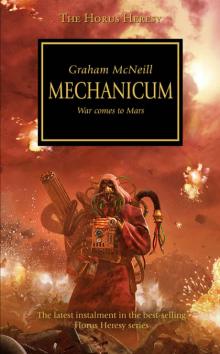 Mechanicum
Mechanicum![[Ulthuan 02] - Sons of Ellyrion Read online](http://i1.bookreadfree.com/i/03/14/[ulthuan_02]_-_sons_of_ellyrion_preview.jpg) [Ulthuan 02] - Sons of Ellyrion
[Ulthuan 02] - Sons of Ellyrion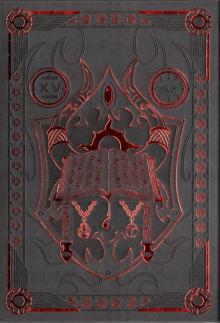 Magnus the Red: Master of Prospero
Magnus the Red: Master of Prospero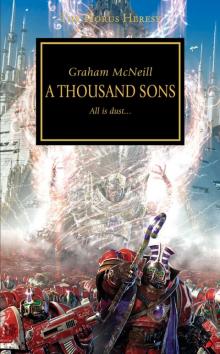 A Thousand Sons
A Thousand Sons![[Warhammer] - Guardians of the Forest Read online](http://i1.bookreadfree.com/i/03/18/[warhammer]_-_guardians_of_the_forest_preview.jpg) [Warhammer] - Guardians of the Forest
[Warhammer] - Guardians of the Forest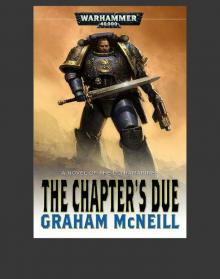 The Chapters Due
The Chapters Due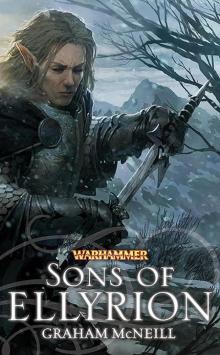 02 - Sons of Ellyrion
02 - Sons of Ellyrion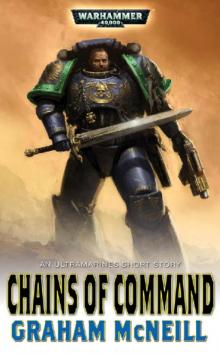 Chains Of Command
Chains Of Command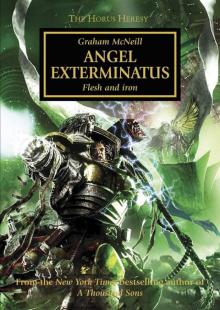 Angel Exterminatus
Angel Exterminatus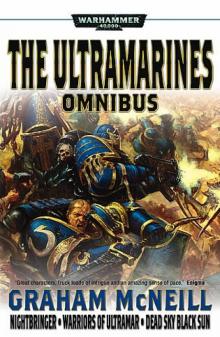 The Ultramarines Omnibus
The Ultramarines Omnibus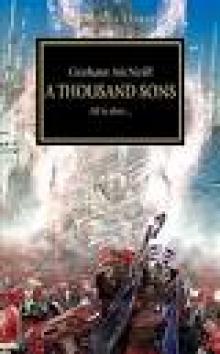 X Marks da Spot
X Marks da Spot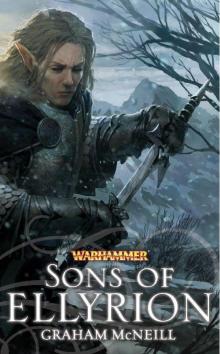 Sons of Ellyrion
Sons of Ellyrion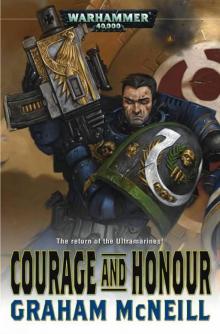 Courage And Honour
Courage And Honour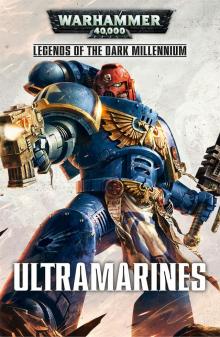 Ultramarines
Ultramarines![[Ulthuan 01] - Defenders of Ulthuan Read online](http://i1.bookreadfree.com/i/03/16/[ulthuan_01]_-_defenders_of_ulthuan_preview.jpg) [Ulthuan 01] - Defenders of Ulthuan
[Ulthuan 01] - Defenders of Ulthuan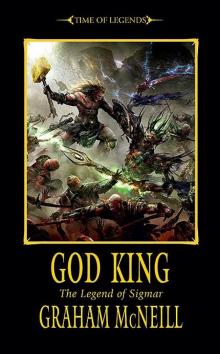 03 - God King
03 - God King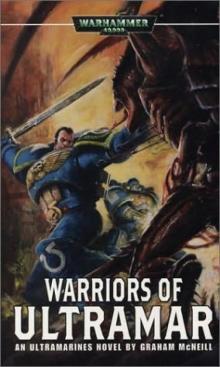 Warhammer - Ultramarines 02 - Warriors Of Ultramar (McNeill, Graham)
Warhammer - Ultramarines 02 - Warriors Of Ultramar (McNeill, Graham)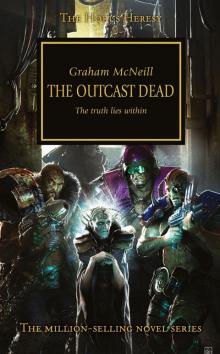 The Outcast Dead
The Outcast Dead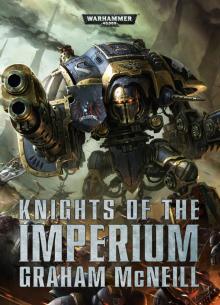 Knights of the Imperium
Knights of the Imperium Defenders of Ulthuan
Defenders of Ulthuan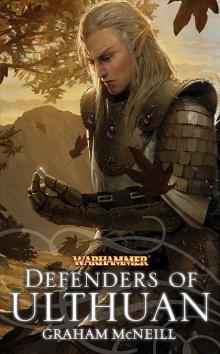 01 - Defenders of Ulthuan
01 - Defenders of Ulthuan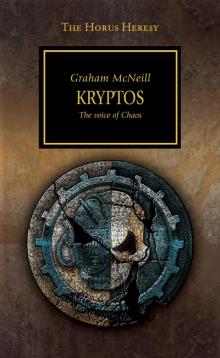 Kryptos
Kryptos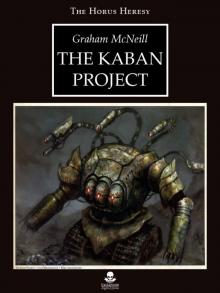 The Kaban Project
The Kaban Project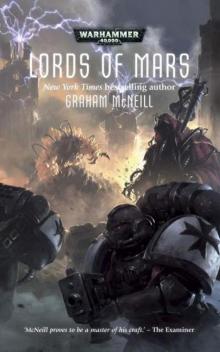 Lords of Mars
Lords of Mars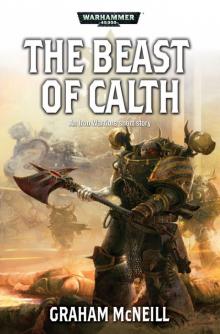 The Beast of Calth
The Beast of Calth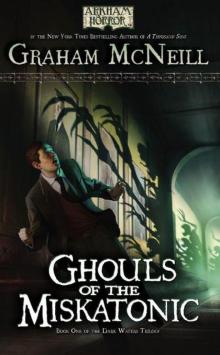 Ghouls of the Miskatonic (The Dark Waters Trilogy)
Ghouls of the Miskatonic (The Dark Waters Trilogy)![[Sigmar 01] - Heldenhammer Read online](http://i1.bookreadfree.com/i/03/24/[sigmar_01]_-_heldenhammer_preview.jpg) [Sigmar 01] - Heldenhammer
[Sigmar 01] - Heldenhammer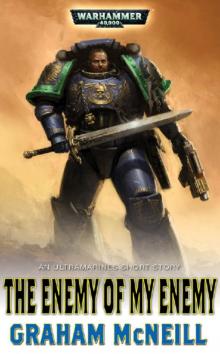 The Enemy Of My Enemy
The Enemy Of My Enemy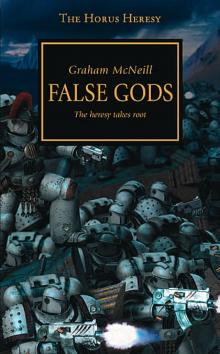 False Gods
False Gods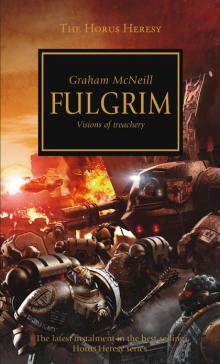 Fulgrim
Fulgrim Mechanicum whh-9
Mechanicum whh-9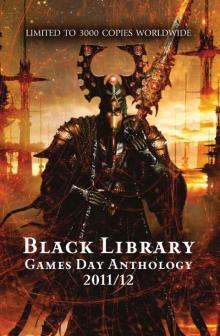 Death of a Silversmith
Death of a Silversmith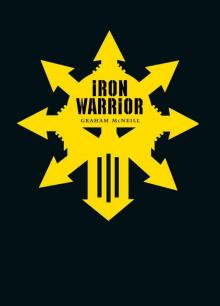 Iron Warrior
Iron Warrior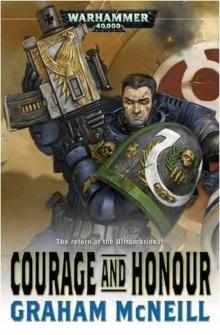 Courage and Honour w4u-5
Courage and Honour w4u-5![[Ultramarines 6] Chapters Due - Graham McNeill Read online](http://i1.bookreadfree.com/i1/03/30/[ultramarines_6]_chapters_due_-_graham_mcneill_preview.jpg) [Ultramarines 6] Chapters Due - Graham McNeill
[Ultramarines 6] Chapters Due - Graham McNeill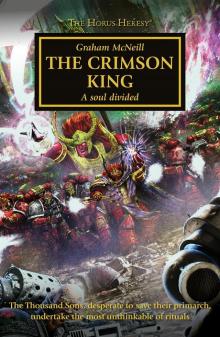 The Crimson King
The Crimson King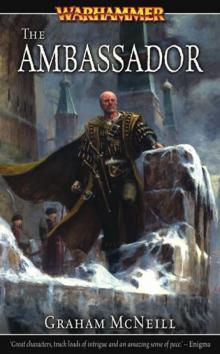 1 the ambassador
1 the ambassador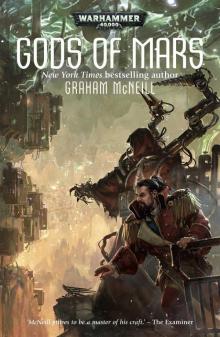 Gods of Mars
Gods of Mars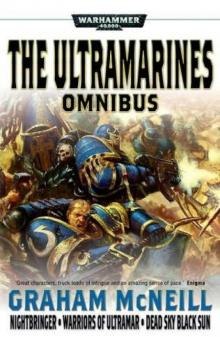 Ultramarines Omnibus (warhammer 40000: ultramarines)
Ultramarines Omnibus (warhammer 40000: ultramarines)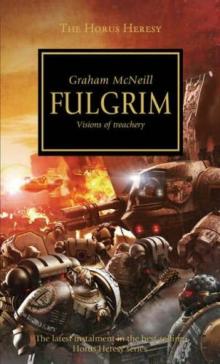 Fulgrim: Visions of Treachery whh-5
Fulgrim: Visions of Treachery whh-5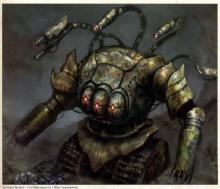 The Kaban Project (warhammer 40000: horus heresy)
The Kaban Project (warhammer 40000: horus heresy)![[Sigmar 02] - Empire Read online](http://i1.bookreadfree.com/i1/04/05/[sigmar_02]_-_empire_preview.jpg) [Sigmar 02] - Empire
[Sigmar 02] - Empire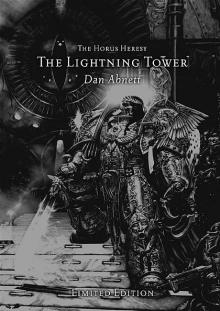 The Lightning Tower & The Dark King
The Lightning Tower & The Dark King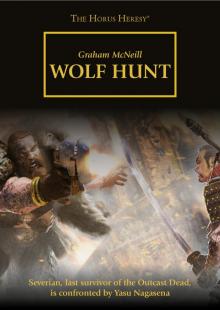 Wolf Hunt
Wolf Hunt Killing Ground w4u-4
Killing Ground w4u-4![Warhammer - [The Ambassador Chronicles 02] - Ursun's Teeth Read online](http://i1.bookreadfree.com/i1/04/05/warhammer_-_[the_ambassador_chronicles_02]_-_ursuns_teeth_preview.jpg) Warhammer - [The Ambassador Chronicles 02] - Ursun's Teeth
Warhammer - [The Ambassador Chronicles 02] - Ursun's Teeth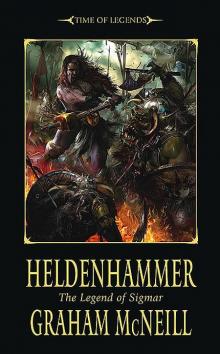 01 - Heldenhammer
01 - Heldenhammer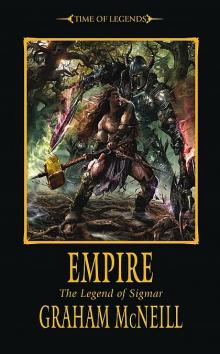 02 - Empire
02 - Empire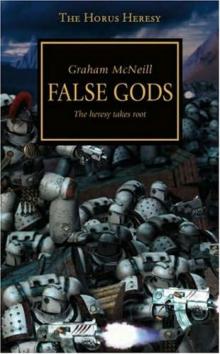 False Gods whh-2
False Gods whh-2